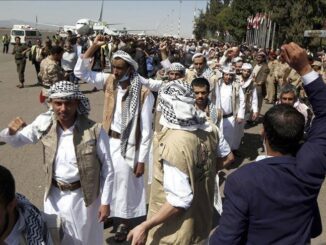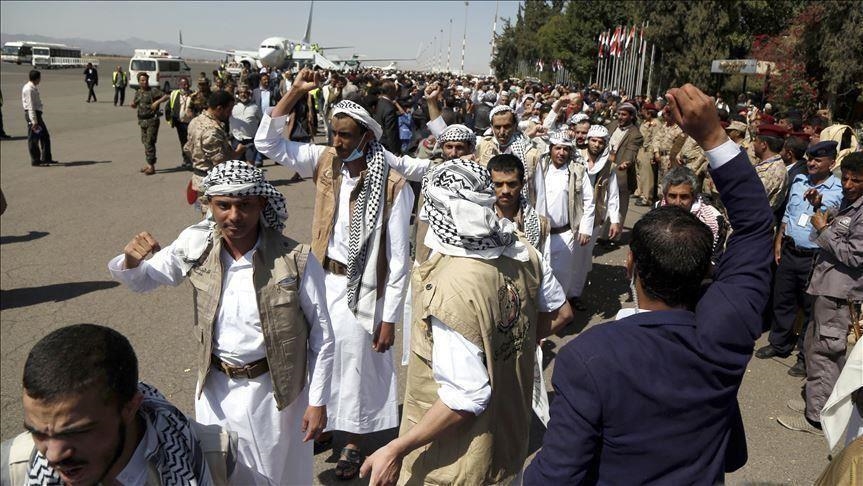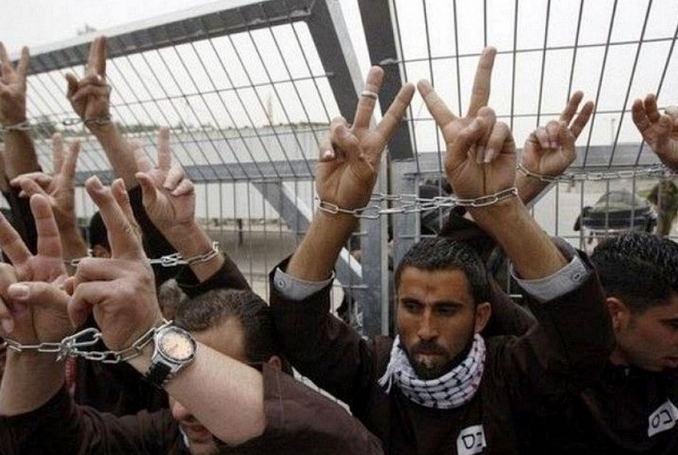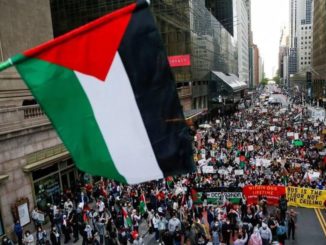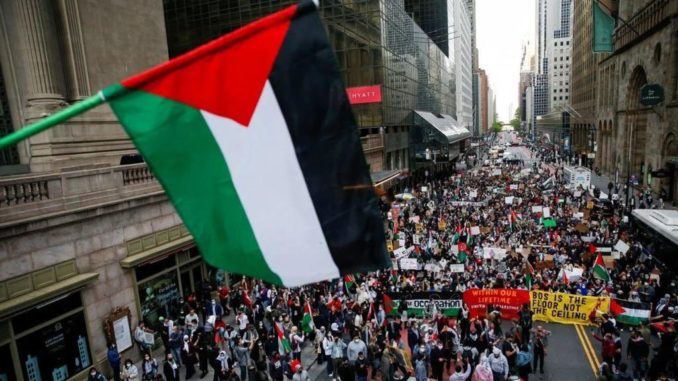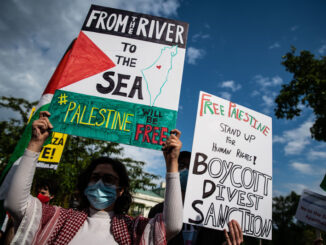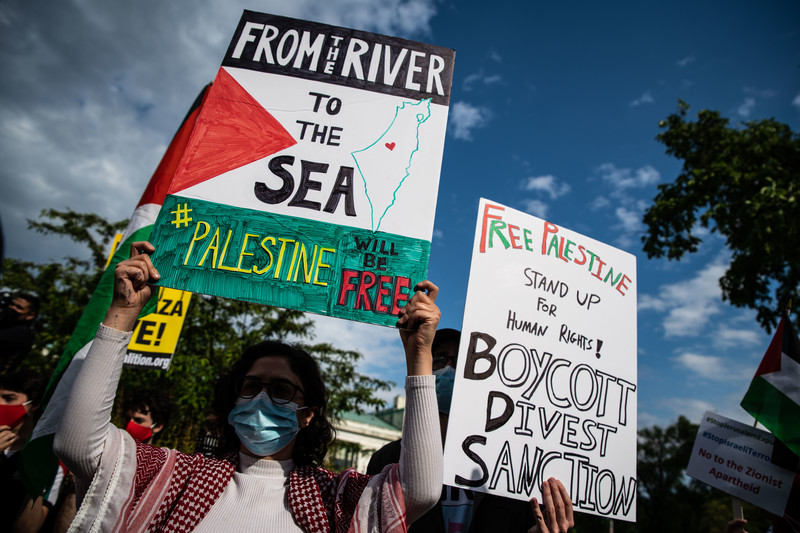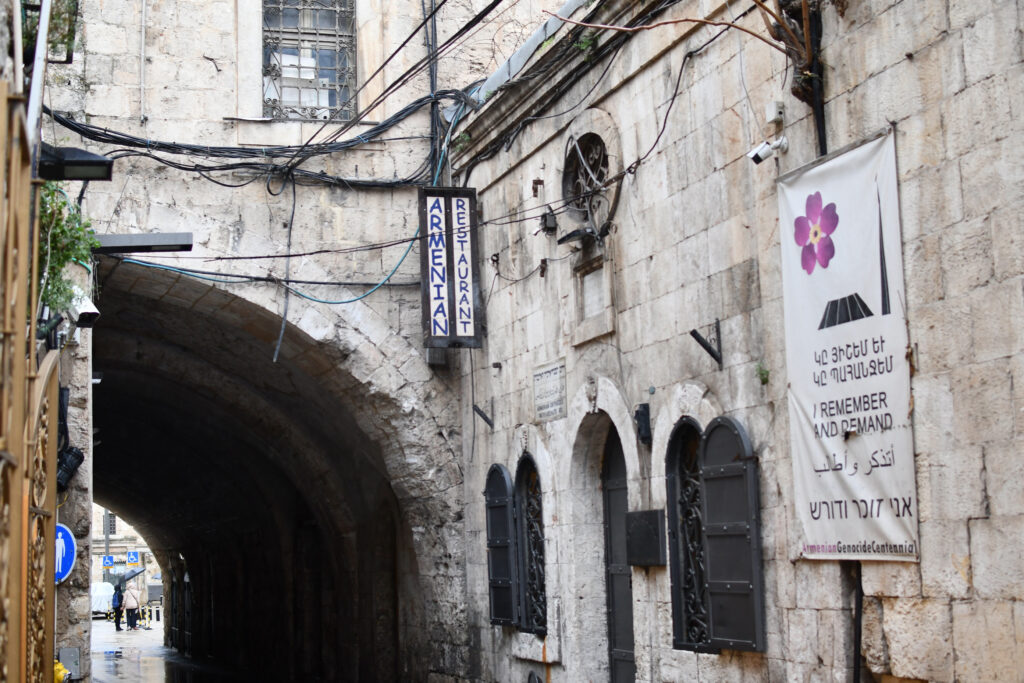
EAST JERUSALEM—Last month, a Jewish tourist toppled a wooden statue of Jesus in a church in the Old City of occupied East Jerusalem. This was the fifth attack against Christians in five weeks.
Following the act of vandalism at the Church of Flagellation, Father Nikodemus Schnabel of the Dormition Abbey, just outside the walls of the Old City in Jerusalem, tweeted, “Welcome to the new Christian-hating Israel, encouraged and supported by the current government!”
Violence against Christians isn’t a new phenomenon in Jerusalem. But since Israel’s most far-right government in its history has taken over, the problem has significantly swelled.
Dr. Amnon Ramon, a senior researcher at the Jerusalem Institute for Policy Research and an expert on Christians in Jerusalem, explained how Jewish extremists attacking Christians run in the same circles as members of the Israeli government’s coalition. That’s the case with National Security Minister Itamar Ben-Gvir, who’s a disciple of Meir Kahane, a Jewish supremacist rabbi who was assassinated in 1990.
“[The perpetrators] feel quite safe because they think that, in a way, the state is with them,” Ramon told Toward Freedom.
According to Protecting Holy Land Christians, a campaign Christian leaders in Jerusalem have organized to raise awareness about the plight of the religious community, hate crimes against Christians vary. They include spitting on clergy and on religious items, as well as verbal abuse, seizure of properties and vandalism of holy sites.
In December, the campaign emphasized that 2022 was “one of the worst years for Christians in Jerusalem to date.”
Attacks Against ‘Non-Jews’
Miran Krikorian experienced this anti-Christian violence first-hand in January when his restaurant, Taboon & Wine, located in the Old City’s Christian Quarter, was attacked by people wearing clothes indicating Jewish identity. The group of about 30 ransacked the bar, breaking chairs, tables and glasses, as well as pepper-spraying employees and terrifying customers.
“There’s a systematic rise against non-Jewish institutions, people and places,” Krikorian said, noting the harassment isn’t directed toward Christians specifically, but rather against all non-Jews.
Krikorian said he wasn’t surprised by the attack, having grown up in the Armenian Quarter, where violence against Christians is a common occurrence.
“After that we saw these kinds of incidents started [to happen] twice a day, even in the Armenian Quarter,” said Father Aghan Gogchyan, chancellor of the Armenian Patriarchate of Jerusalem.
Gogchyan said he didn’t want to blame Israel’s new government for the stark rise in violence against Christians, but rather suggested the culture of impunity is responsible.
“We are complaining about anarchy,” Gogchyan said. “That everybody can and does whatever [they] want and nobody will be punished.
Lack of Protection from Police
Krikorian called the police during the assault on his business, but said law enforcement didn’t arrive immediately.
“Once the police came, they didn’t do anything,” Krikorian said. “They just pushed back the settlers and that’s it.”
After the attack, Krikorian filed an official report at the police station. He added that three suspects were arrested, but no charges have been filed. Israel Police would not comment to Toward Freedom, citing the pending investigation.
The police station is located next to the Armenian Quarter, yet Christians in Jerusalem have often accused law enforcement of inaction when dealing with anti-Christian violence.
“The biggest problem is no one is feeling safe by the police or by the authorities,” Krikorian said.
From Gogchyan’s perspective, the police are easily deceived by Jewish assailants.
“These extremists know how to behave during the attacks in order to make the police back them and support them,” Gogchyan said. “And the police, without realizing, are tricked.”
Gogchyan described how, in one example, after Jewish radicals spat on the Armenian convent and tried to tear down the Armenian flag there, they ran to the nearby police station and began shouting “violence.
By doing so, the police thought the Armenians were attacking the perpetrators.
The Armenian Patriarchate met with police in February to address heightened tensions, especially considering the Muslim holy month of Ramadan, the Jewish feast of Passover and the Christian holiday of Easter will occur in April.
Gogchyan said police told the patriarchate that law enforcement will try to prevent atrocities from happening. But Gogchyan remains concerned, as police have implied they don’t have full control.
“In a way, they said ‘such crimes will happen, and we cannot prevent them because we don’t know if [Jewish fanatics] are going to do it or not. But when something happens, we will try to protect you,’” Gogchyan said.
Christian Presence in Decline
Palestine, the birthplace of Christianity, is rapidly seeing the population’s erasure from its land.
According to Protecting Holy Land Christians, Christians are estimated as making up less than 1 percent of Jerusalem’s population.
Not only does the community feel it doesn’t have police protection, but Christians have also lost representation in the government, as well.
“There is no address in the high level of the Israeli establishment for the Christian factions of Jerusalem,” said researcher Ramon, explaining how the Christian affairs department in Israel’s now-defunct Religious Affairs Ministry was once a powerful unit.
But, in 2003, when the Religious Affairs Ministry was dissolved and its duties absorbed by the Interior Ministry, Christian representation dwindled. Today, the department is run by one person.
Amid a loss of power against intensifying Jewish hegemony, Christians—and other minorities—see the state as working for only one people.
Krikorian feels this discrimination—and hatred of non-Jews—is legitimized through Israel’s current leadership.
“The extremists got the backing of the government and now they’re attacking all the time.”
Jessica Buxbaum is a Jerusalem-based freelance journalist reporting on Palestine and the Israeli occupation. You can follow her on Twitter at @jess_buxbaum.

